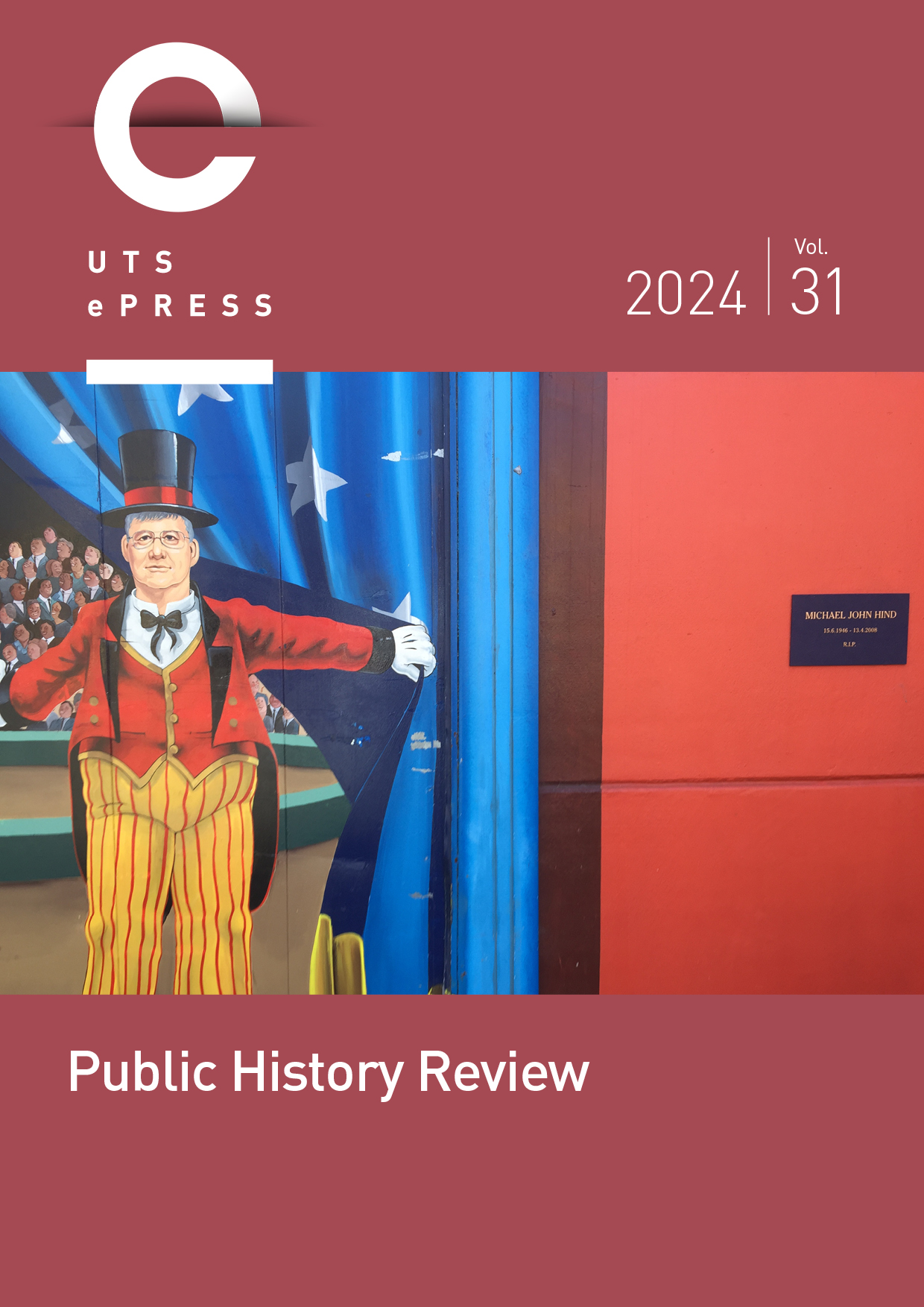History on the Game Board The Use of Board Games in History Education in Poland
Main Article Content
Abstract
This article describes popular game titles used in history education in Poland. In the first part, games designed by the Institute of National Remembrance (IPN) are presented, along with examples of their use and feedback expressed after playing by students. The second part of the article discusses the global bestselling game Twilight Struggle along with a case study of its use with history students. The purpose of the article is to point out the possibilities of gamification of historical education and, above all, to indicate the applications of board games in the academic training of teachers who later create school reality with their work.
Article Details
Issue
Section
Authors who submit articles to this journal from 31st March 2014 for publication, agree to the following terms:
a) Authors retain copyright and grant the journal right of first publication with the work simultaneously licensed under a Creative Commons Attribution License that allows others to share and adapt the work with an acknowledgement of the work's authorship and initial publication in this journal.
b) Authors are able to enter into separate, additional contractual arrangements for the non-exclusive distribution of the journal's published version of the work (e.g., post it to an institutional repository or publish it in a book), with an acknowledgement of its initial publication in this journal.
c) Authors are permitted and encouraged to post their work online (e.g., in institutional repositories or on their website) prior to and during the submission process, as it can lead to productive exchanges, as well as earlier and greater citation of published work (See The Open Access Citation Advantage Service). Where authors include such a work in an institutional repository or on their website (ie. a copy of a work which has been published in a UTS ePRESS journal, or a pre-print or post-print version of that work), we request that they include a statement that acknowledges the UTS ePRESS publication including the name of the journal, the volume number and a web-link to the journal item.
d) Authors should be aware that the Creative Commons Attribution (CC-BY) License permits readers to share (copy and redistribute the work in any medium or format) and adapt (remix, transform, and build upon the work) for any purpose, even commercially, provided they also give appropriate credit to the work, provide a link to the license, and indicate if changes were made. They may do these things in any reasonable manner, but not in any way that suggests you or your publisher endorses their use.
For Vol 20 (2013) and before, the following copyright applied:
Authors submitting articles to UTSePress publications agree to assign a limited license to UTSePress if and when the manuscript is accepted for publication. This license allows UTSePress to publish a manuscript in a given issue. Articles published by UTSePress are protected by copyright which is retained by the authors who assert their moral rights. Authors control translation and reproduction rights to their works published by UTSePress. UTSePress publications are copyright and all rights are reserved worldwide. Downloads of specific portions of them are permitted for personal use only, not for commercial use or resale. Permissions to reprint or use any materials should be directed to UTSePress.
References
Aileen Orr, 2014, Wojtek the Bear: Polish War Hero, Birlinn, Edynburg, 2014. Alun Munslow, A History of History, Routledge, New York, 2012.
Ana Ruiz, The Spirit of Ancient Egypt, Algora, New York 2001.
Andrew Denning, ‘Deep Play? Video Games and the historical Imaginary, The American Historial Review, vol 126, 2021. https://doi.org/10.1093/ahr/rhab002
Brian Mayer and Christopher Harris, ‘Libraries Got Game: Aligned Learning through Modern Board Games’, Chicago: American Library Association, 2010.
Christopher Hariss, ‘Meet the new school board’, School Library Journal, May, 2009.
Faye Sayer, Public History A Practical Guide, 2 nd, Bloomsbury Academic, London, 2019.
Jeffrey M. Byford, ‘Kolejka: Teaching Dialy Livinging 1980s Poland’, International Journal of Historical Learning, Teaching and Research, no 12.2, 2014, p162.
Jerome de Groot, Consuming History. Historians and heritage in contemporary popular culture, 2 nd, Routledge, London, 2016.
Joanna Wojdon (ed), Public History in Poland, Routledge, London, 2021.
Joanna Wojdon, 2019, Public History and Board Games (Online). Available: https://public-history-weekly.degruyter.com/7-2019-9/kolejka-history/ (Accessed 28 December 2023).
Joanne Mercik, ‘A saintly exponent and persistent multiplier of the national spirit. Wojciech Korfanty's traces of Zakopane and beyond…, Cum Laude, Katowice, 2022.
Joanne Mercik, 'Participation of Zagłębie inhabitants in battles for independence and borders of the Republic of Poland presented in the programme In inheritance from grandfather'., in Dariusz Nawrot (ed), Zagłębie Dąbrowskie and the Silesian (1919-1921), Polish Historical Society, Warsaw, 2020.
Joanne Mercik, Public history in anniversary celebrations using the example of the 'Inheritance of my grandfather' project in Mark Białokur, Ann Gołębiowska (ed), Anniversaries of many meanings 1919/1939/1989 or history homework?, University of Opole, Opole 2019.
John Pagnotti and William Russell, ‘Using civilization IV to engage students in world history content’, in The Social Studies, vol 103, 2012.
Kevin Kee (ed), Pastplay: Teaching and Learninig History with Technology, University of Michigan, Michigan, 2014.
Konrad Kochel and Maria Stina, ‘Educational values of traditional board games’, Yearbook International Society for History Didactics, no 36, 2015.
Luke Wierzbicki, Grandpa and bear, Pointa, 2012.
Marcy P. Driscoll and Kerry J. Burner, Psychology of Learning for Instruction, 4 th, Hoboken, New York 2021.
Peter Seixas, ‘Conceptualizing the growth of historical understanding’, in David R. Olson, Nancy Torrance (ed), The handbook of education and human development, Blackwell, Oxford,1998.
Raphael Samuel, ‘Theatres of Memory’, in Hilda Kean and Paul Martin (ed), The Public History Reader, Routledge, London, 2013.
Sangkyun Kim and Kibong Song and Barbara Lockee and John Burton, ‘Gamification in Learning and Education: Enjoying Learning Like Gaming’,British Journal of Educational Studies, vol 68, no 2, 2020.
Thomas Cauvin, Public History. A Textbook of Practice, Routledge, New York, 2016.
Tonia Durden, Julia Dangel, ‘Teacher-involved conversations with young children during small group activity’, Early Years, no 28, 2008.
